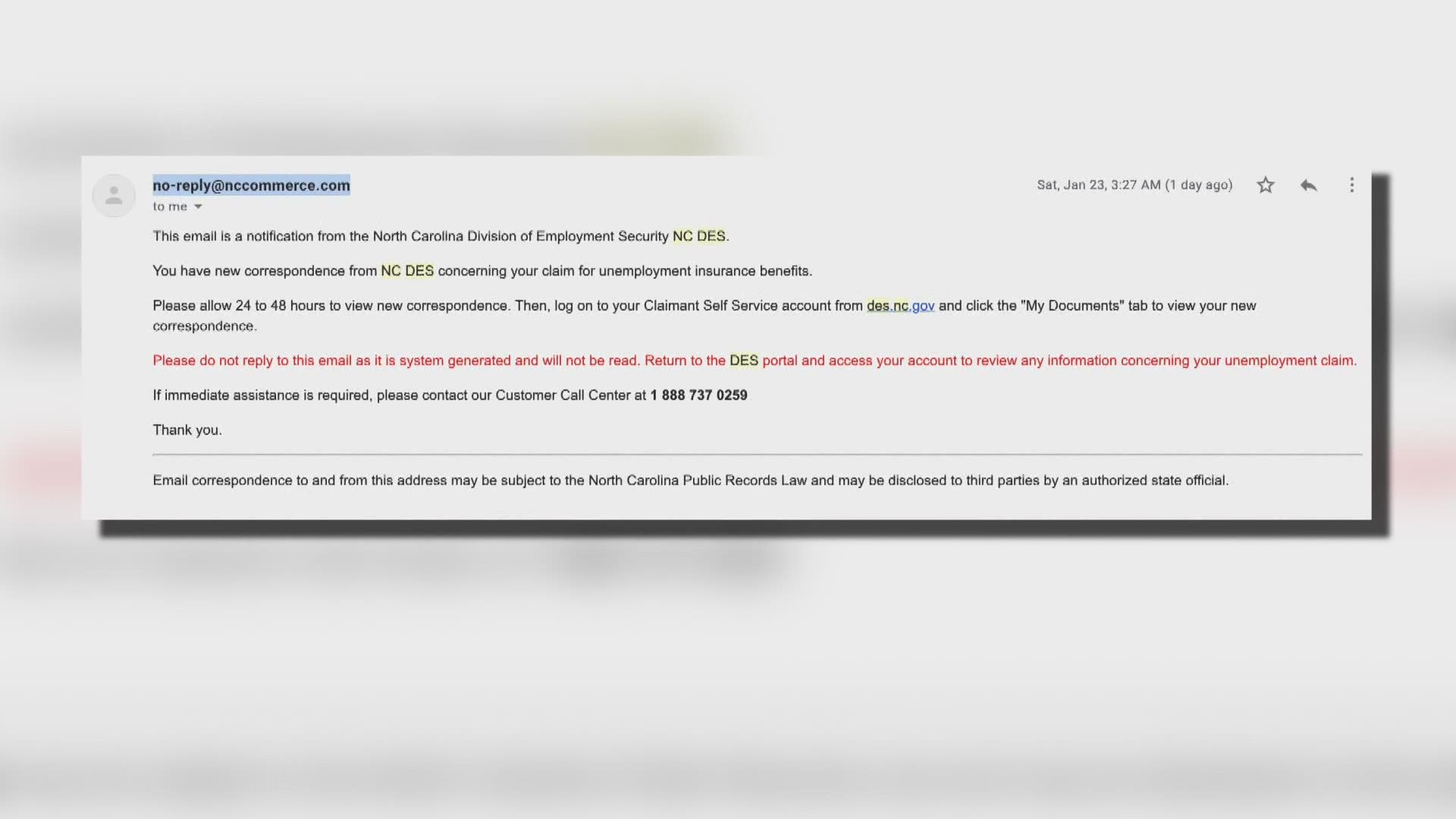NORTH CAROLINA, USA — Viewers reached out to WFMY News 2 about receiving a vague email from the N.C. Division of Unemployment Security, the state agency responsible for paying people unemployment benefit money, which includes COVID-19 pandemic relief funds.
The email's subject line is "Unemployment Insurance," and the body of the email says, "This email is a notification from the North Carolina Division of Employment Security NC DES. You have new correspondence from NC DES concerning your claim for unemployment insurance benefits."
This email is actually a notification that a tax form related to your unemployment payment, including additional funds from COVID-19 legislation, is available.
The IRS form is called a "1099-G," and contains information about the total amount of money you received from NC DES during 2020.
Unemployment benefits are considered "taxable income," according to NC DES, and thus must be reported on your federal and state tax returns.
Your 1099-G documents will be sent to you either by mail or email, but you can find it on your NC DES account page right now too.
To access your 1099-G, which you will need when filing taxes, login to your NC DES account first. Once you login, you will see the words "View my 1099G" in black underlined text in the lower-middle portion of the screen. Click that link to see your document, which you can print or save to your computer.
The 1099-G forms will be available to all people who received unemployment funds by Jan. 31, 2021, according to NC DES.
WFMY News 2 has reached out to Kerry McComber, N.C. DES public information officer, for further details.
1.42 million people in NC applied for unemployment benefits between March 15, 2020 and January 21, 2021, according to NC DES.
The state has paid out $9.4 billion dollars since March 15, 2020, including state unemployment insurance, COVID-19 pandemic unemployment compensation, and extended benefits, according to data from the agency.

